Addiction is a complex and often devastating condition that impacts not only the individual but also their entire network of family, friends, and loved ones. It infiltrates every facet of life, from relationships to careers, often leaving individuals feeling overwhelmed, hopeless, and isolated. However, recovery is possible, and millions of people worldwide can attest to this truth, thanks to the enduring support offered by 12-step programs. Woodmont can walk you through what to expect at a 12 step meeting.
For decades, these groups have stood as beacons of hope within the recovery community. Founded on the principles outlined in Alcoholics Anonymous (AA), the original 12-step program, they have provided countless individuals with the tools and accountability necessary to reclaim their lives. Today, 12-step meetings are a cornerstone of recovery for those seeking liberation from addiction, offering insight, companionship, and a structured path to healing.
Whether you’re new to the idea of recovery or a loved one researching options for someone close, understanding the basics of 12-step meetings can provide valuable clarity about what to expect—and why they matter.
What Is a 12-Step Meeting?
A 12-step group is a mutual support community dedicated to helping individuals recover from addiction, compulsive behaviors, or other difficulties by following a proven step-by-step process. The original program, Alcoholics Anonymous, was founded in 1935 and centers on twelve core principles that guide participants toward spiritual growth, accountability, and lasting sobriety.
Over time, additional groups modeled after AA have emerged to meet the unique needs of those struggling with other forms of addiction or behavioral challenges. Narcotics Anonymous (NA), for instance, is designed for those recovering from substance abuse beyond alcohol, while Al-Anon offers support for families and loved ones of individuals affected by addiction. Today, there are groups specifically tailored for nearly every recovery need, such as Overeaters Anonymous, Gamblers Anonymous, and Codependents Anonymous, among others.
What sets these meetings apart is their welcoming community. Members often share a common understanding of the struggles associated with addiction, yet uphold an environment free from judgment. Anchored in anonymity and mutual respect, 12-step groups offer individuals the opportunity to explore their recovery in an atmosphere of acceptance and empathy.
How a 12-Step Meeting Works
For someone unfamiliar with 12-step meetings, the prospect of attending for the first time may feel intimidating, but rest assured, these gatherings are built on inclusiveness and shared commitment to recovery. Understanding what to expect can further ease any apprehension and allow you to focus on the healing experience they offer.
Arrival and Welcome
Upon arriving at a 12-step meeting, you can expect a warm and welcoming atmosphere. Typically held in accessible locations such as community centers, churches, or meeting halls, these gatherings are designed to promote comfort and connection above all else. Some meetings may provide coffee or refreshments, while others ensure seating is arranged to foster openness and dialogue.
At the start, the meeting facilitator—a group member who oversees the session—may pause to greet newcomers. If it’s your first time attending, you may be asked to introduce yourself, typically by simply sharing your name and acknowledging that you are there for support. Rest assured, there is no pressure to share your story at length; you can participate as much or as little as you feel comfortable.
The Structure of the Meeting
Most 12-step meetings follow a predictable format, which often begins with the reading of foundational texts such as the Twelve Steps or the Twelve Traditions. These writings offer shared guidance and serve as a reminder to participants of the principles that underpin their recovery journey.
Following the opening readings, the meeting typically shifts to group sharing. Members may openly reflect on their experiences, highlight progress they’ve made, or discuss challenges they’re facing. This portion of the meeting is designed to foster connection, allowing participants to relate to others’ stories and gain valuable insight into their own recovery.
In some cases, meetings may also include a designated speaker—often a group member—who shares their personal recovery journey at greater length. These stories serve as powerful reminders of the hope and healing possible through the program, inspiring newcomers and long-time participants alike.
Many meetings close with shared affirmations or prayers, such as the Serenity Prayer, along with opportunities for casual conversation. New attendees are often encouraged to stay after for discussions with other group members, ask questions, or exchange contact details with potential sponsors—individuals who provide mentorship and accountability within the program.
A Safe Space for Support
At its core, a 12-step meeting serves as a safe space for individuals to take intentional steps toward recovery, surrounded by people who truly understand their struggles. Anonymity is a cornerstone of these groups, ensuring participants feel secure sharing openly without fear of judgment or reprisal.
The beauty of the 12-step model lies in its simplicity and accessibility. People from all walks of life, united by a common desire to heal, join together to support one another, often forming bonds that extend far beyond the meeting room.
Take the First Step Toward Recovery with 12-Steps at Woodmont
Leaving addiction and its associated challenges behind is rarely an easy journey, but with the proper support, it is a journey that brings immeasurable rewards. Whether you find comfort in the camaraderie of 12-step meetings or seek personalized care, the time to take the first step is now.
At Woodmont Treatment Center, we understand the courage it takes to admit the need for help, and we are here to walk alongside you every step of the way. Our state-of-the-art treatments, luxurious facilities, and expert staff provide the optimal backdrop for sustainable transformation. From evidence-based therapies to a serene environment that promotes self-reflection and renewal, we empower our clients to regain control of their lives with confidence.
If you or a loved one is battling substance abuse or dual-diagnosis concerns, we are ready to listen, support, and guide you toward recovery. Contact Woodmont Treatment Center today to begin your healing journey—a journey you truly deserve.
Recovery begins with a single decision—and with the right care and support, it can change everything. Let us help you make that change.

























